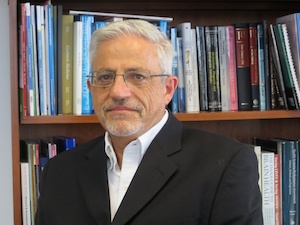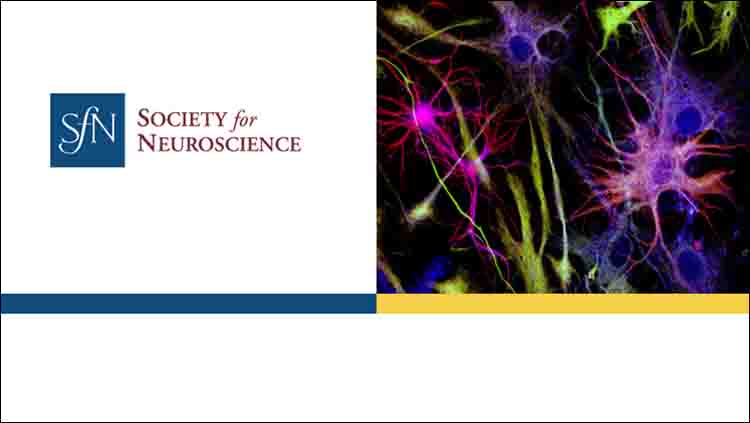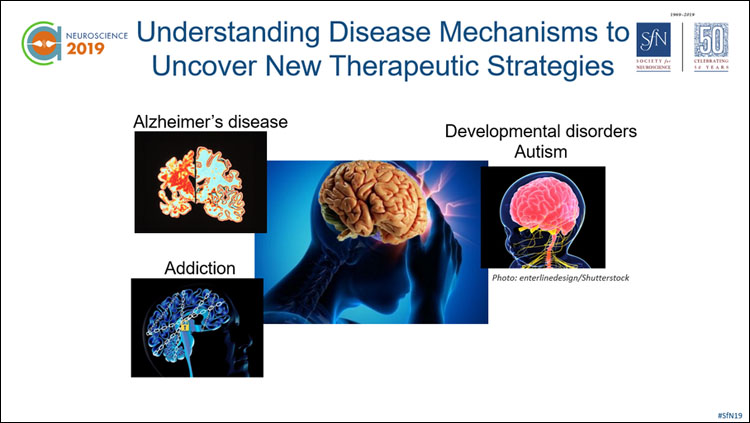Q&A: NIMH, NIA, NINDS Leadership Share COVID-19 Research at NIH
Joshua Gordon, MD, PhD, is the director of the National Institute of Mental Health (NIMH). Jeymohan Joseph, PhD, serves as chief of NIMH HIV Neuropathogenesis, Genetics, and Therapeutics Branch at the Division of AIDS Research. Eliezer Masliah, MD, is the director of the Division of Neuroscience at the National Institute on Aging (NIA). Nina F. Schor, MD, PhD, is deputy director and acting scientific director of the National Institute of Neurological Disorders and Stroke (NINDS). Together, they share how their institutes prioritize and support research related to SARS-CoV-2 and COVID-19.
Neuroscience Quarterly (NQ): “COVID-19 research” is a label that can be applied to a wide range of research areas. How has NIH identified research priorities to pursue? What are those priorities?

Joshua Gordon, NIMH
Joshua Gordon (JG), Jeymohan Joseph (JJ), Eliezer Masliah (EM), Nina Schor (NS): The National Institutes of Health has developed an NIH-wide strategic plan for COVID-19 research that addresses key priorities in the area of SARS-CoV-2 research. This strategic plan prioritizes research focused on understanding, preventing, detecting, mitigating, and treating SARS-CoV-2 and COVID-19 infections. NIH has developed cross-cutting strategies such as partnering to promote collaborative science, supporting the research workforce and infrastructure, investing in data science, and engaging with and educating the public to help make progress in the strategic plan priority areas.
NQ: Limited to COVID-19’s impact on the brain and nervous system, what questions do NINDS, NIA, and NIMH see as research priorities?

Eliezer Masliah, NIA
EM: Many of the NIA Division of Neuroscience research priorities are outlined in the published notices NOT-AG-20-022 and NOT-AG-21-016. The first notice was designed to support administrative and revision supplements in aging biology, behavioral and social research, geriatrics and gerontology, and neuroscience related to COVID-19. The second notice encouraged applications to address questions about the neurological and neurocognitive impacts of COVID-19 infection in aging and the interaction in older adults of COVID-19 with comorbid conditions, including Alzheimer’s disease (AD) and AD-related dementias (ADRD).

Jeymohan Joseph, NIMH
JG, JJ, NS: The NIMH, NINDS, and NIA recently convened a meeting titled “Neurologic and Psychiatric Effects of SARS-Co-V2 Infection.” The meeting focused on research areas of need, including developing case definitions of various neurologic and psychiatric manifestations of long COVID-19, determining the epidemiology of long-term neuropsychiatric complications of COVID, and determining the pathophysiology of long COVID-19 as it relates to neuropsychiatric manifestations. The meeting also brought to light the importance of developing animal models for the study of neuropsychiatric manifestations of long COVID-19, determining if and how long COVID-19 leads to the acceleration of other underlying neurodegenerative and psychiatric diseases, and the need to initiate early phase clinical trials to impact the course of neuropsychiatric manifestations of long COVID-19.
NQ: What is some of the most exciting science you’re seeing on the topic of COVID-19 and the brain?
JG, JJ, EM, NS: Several recent papers that examine how SARS-CoV-2 enters the brain and causes neurological symptoms caught our attention. For example:
- Lee et al. Microvascular injury in the brains of patients with COVID-19. N Engl J Med 2021.
- Patterson et al. The emerging spectrum of COVID-19 neurology: clinical, radiological and laboratory findings. Brain 2020.
- Meinhardt et al. Olfactory transmucosal SARS-CoV-2 invasion as a port of central nervous system entry in individuals with COVID-19. Nat Neurosci 2021.
- Song et al. Divergent and self-reactive immune responses in the CNS of COVID-19 patients with neurological symptoms. Cell Rep Med 2021.

Nina F. Schor, NINDS.
NQ: What cross-institute collaboration is happening on the topic of COVID-19 and the brain?
JG, JJ, EM, NS: In addition to the meeting mentioned above, our institutes collaborate in the RECOVER initiative and Collaborative Cohort of Cohorts (C4R). These efforts seek to rapidly improve our understanding of recovery after SARS-CoV-2 infection and how to prevent and treat post-acute sequelae SARS-CoV-2 infection (PASC), including effects on the brain and nervous system.



















